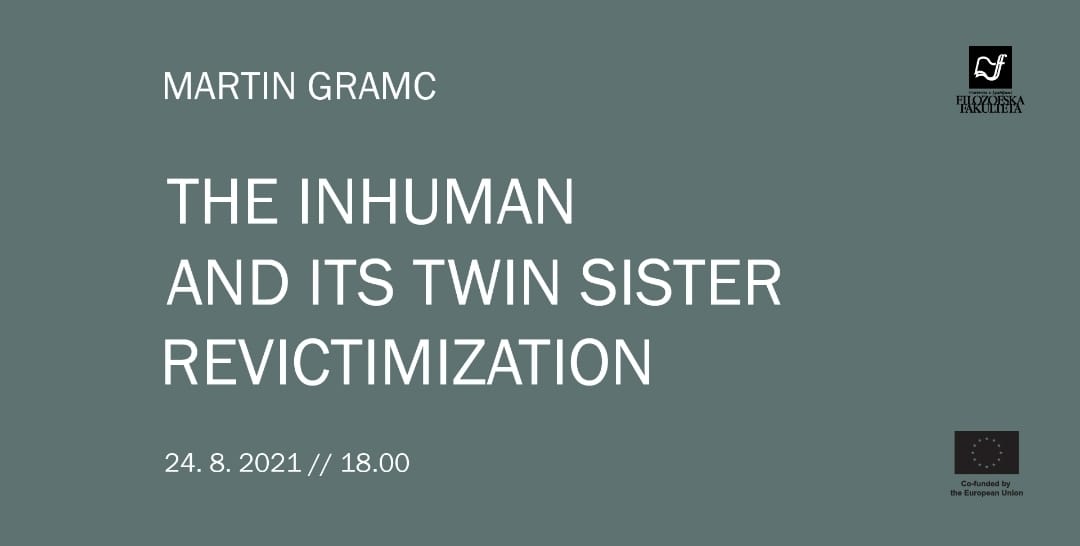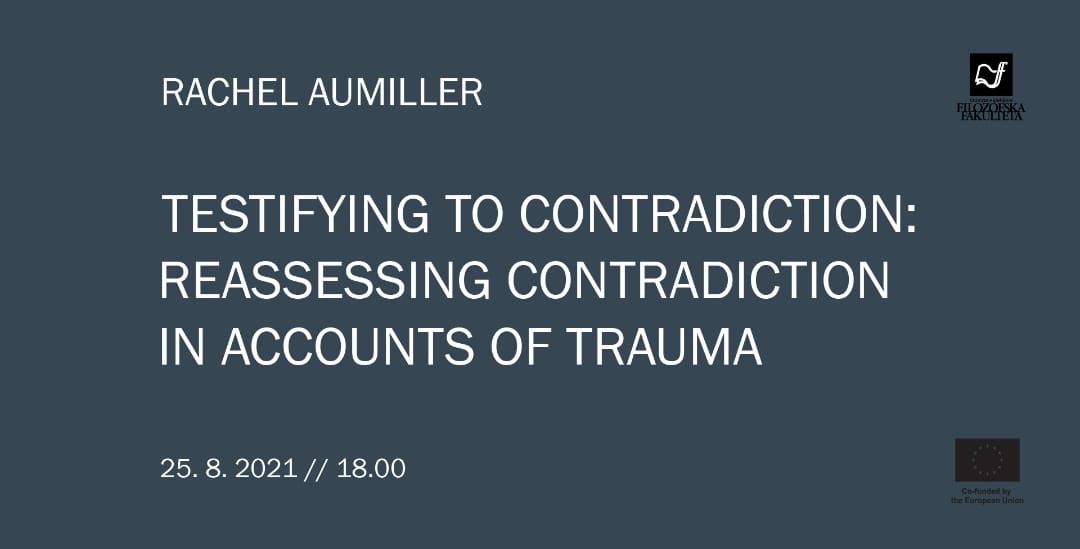

Developing forensic statement analysis standards to fight CAE: A victim centred approach
| Project Acronym | VERBUM_SAT |
| Co-Funded/Granted by | European Union/European Commission Directorate-General for Migration and Home Affairs Union actions |
| Type of action | ISF-Police Action Grant |
| Beneficiary/Coordinator |
FACULTY OF ARTS, UNIVERSITY OF LJUBLJANA |
| Co-beneficiaries/Consortium Members |
- MINISTRY OF INTERIOR, REPUBLIC OF SERBIA (RS) - EUROPEAN FORENSIC AGENCY (RS) |
| Project duration | 1 April 2019 - 31 August 2021 |
| Total Project Costs |
641,861.97 EUR |
VERBUM SAT: Developing forensic statement analysis standards to fight CAE: A victim-centred approach is an ambitious, interdisciplinary international project. Its main goal is to provide an innovative way of tackling secondary victimization of victims of exploitation and abuse by providing a novel method for acquiring relevant forensic evidence and equipping professionals in the field of criminal investigative to efficiently use such a tool in everyday practice.
In the latest period, especially after ratifying the Istanbul Convention1 by majority of European countries, the focus of improvements of investigation procedures and capacities has turned to the area of crimes against vulnerable groups (female, children etc.), such as Sexual and Gender Based Violence, Child Abuse and Exploitation, Domestic Violence etc. Particularly, as one of the main issues concerning improvements, the proper treatment and protection of victims is recognized. One of the most common and critical problems referring to victims, which needs to be minimized, is the issue of secondary or repeated victimization, which regularly takes place during standard criminal proceedings. The need for targeting and overriding this problem is emphasized by the EU “Victims’ Rights Directive”2.
In line with the above mentioned premise, a new approach in child victim interviewing is being developed and implemented, based on the imperative that the victim must be interviewed only once during the whole procedure and not repeatedly, which is the rule in “traditional” procedures.
The aim of VERBUM_SAT Project is to develop a methodology for forensic analysis of written statement and establish standards for cases of Child Abuse and Exploitation (CAE) relying on scientific, psycholinguistic basis. Forensic Statement Analysis methodology (FSA) is intended to be “victim centered”, i.e., to entirely fulfil above-described requirements, and to include other advantages useful for criminal procedure efficiency and human rights’ protection. By acquiring the victims’ statement in a written form, at the beginning of the process, victim gets protected from repeatedly questioning by different criminal justice and other bodies included in the procedure, minimizing the risk of secondary victimization i.e., multiple traumatization due to recall and reliving of the unpleasant event. The scientific based, linguistic and psychological methodology provides an extremely high level of accuracy in analysing the truth of every segment of the statement, providing important information for the investigation, and resolving one of the key dilemmas, already in the investigating phase of the process. At the same time, by using this type of analysis, real victims get protected, from the beginning, in a very subtle way, from open distrust frequently expressed by the investigating bodies, as well as accused persons, in case of false accusation. Beside above-mentioned advantages, implementation of this methodology in the criminal procedure system, together with appropriate marketing, contributes to prevention of CAE and other related criminal acts (e.g., Sexual and Gender Based Violence – SGBV), because it discourages both perpetrators and false accusers.
During two years of Project execution, FSA methodology is going to be fully developed and its’ application standards scientifically adjusted to CAE cases, by a team of researchers of the Project Consortium, in a parallel and complementary process of theoretical and empirical research. In a synchronous and gradual procedure of research, adjustment and implementation of the methodology, Serbian Ministry of Interior will adopt a powerful, scientifically based investigation tool with high victim protection standards, which can be further applied to other European countries.
Since practical application of FSA is linguistic-dependent and since it is going to be parallel developed and practically implemented in Serbia and Croatia, it will be possible to use the methodology in Bosnia and Herzegovina and Montenegro, as well. Further application to other countries needs adjustment, primarily on linguistic level.
1 Council of Europe Convention on preventing and combating violence against women and domestic violence.
2 Directive 2012/29/EU of the European Parliament and of the Council establishing minimum standards on the rights, support and protection of victims of crime.
- Develop a toolkit for application into diagnostics procedures of child abuse and exploitation victims and develop protocol to facilitate victim identification and reduce secondary victimization.
- Enhance law enforcement capacity to investigate child abuse and exploitation with non-invasive forensic statement analysis method.
- Establish a platform for secondary victimization prevention of child abuse and exploitation victims.
- Train law enforcement professionals in child welfare sector on Forensic Statement Analysis protocol.
- Share/promote good practices and experiences with administering the implementation of Forensic Statement Analysis on national and EU level.
Events
Ljubljana, Slovenia, May the 5th 2019.
- Presentation of project assumptions, objectives and deliverables.
- Presentation of consortium partners and their project roles.
- Formation of Steering committee and Executive board.
- Presentation of the work plan for Work packages 2 – 8.
- Workshop: Interoperability and database organization.
- Workshop: Data collection and processing.
- Workshop: Project Communication plan.
- Reporting and administrative management.
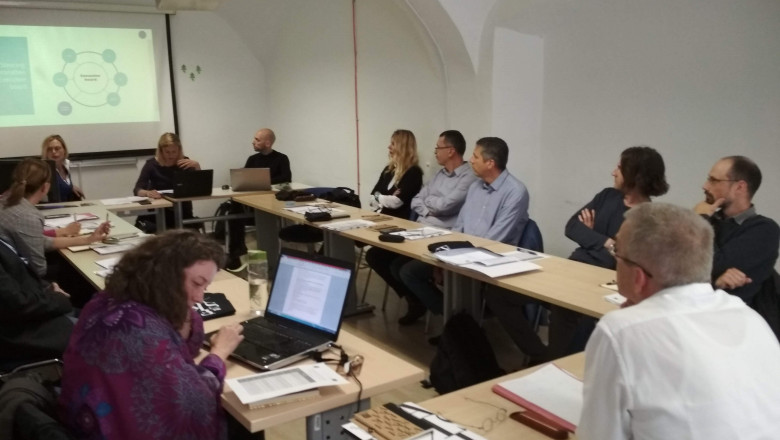
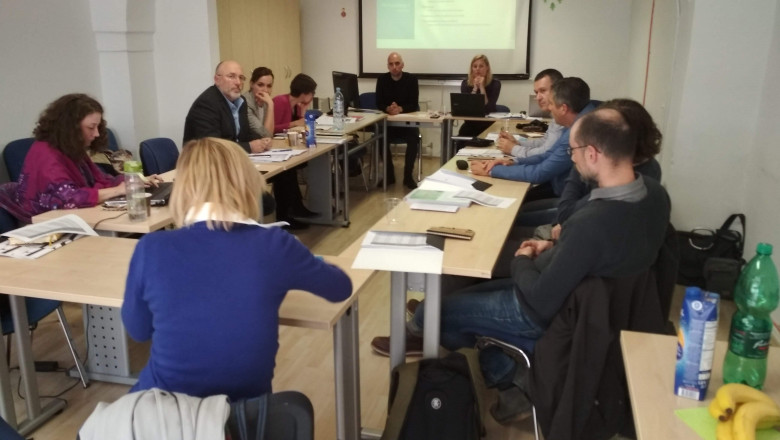
Prim. Domagoj Štimac, MD, psychiatry specialist, subspecialist of child and adolescent psychiatry and Ph.D. Renata Ćorić Špoljar, psychologist, held a lecture in Ljubljana on May 23rd 2019 on the topic of forensic interview.
Belgrade, Serbia, June 3rd - 6th 2019.
Statement analysis, also called scientific content analysis (SCAN), is a technique for analyzing the words people use when describing event, to detect concealed information, missing information, and whether the information that person has provided is true or false.
The course was developed and presented by Mr. Avinoam Sapir. Mr. Avinoam Sapir holds a Bachelor’s degree in both Psychology and Criminology, and a Master’s degree in Criminology. He served in Israeli Military Intelligence and the Israeli Police Polygraph. SCAN technique was developed by Mr. Sapir conducting extensive research into verbal communication, looking into the linguistic behaviour used by people in communication.
During the past few decades, Mr. Sapir has conducted training in interviewing for various government agencies in Israel, the US, Canada and several other countries around the world. The SCAN technique is currently being used in many police departments and other government agencies in many countries.
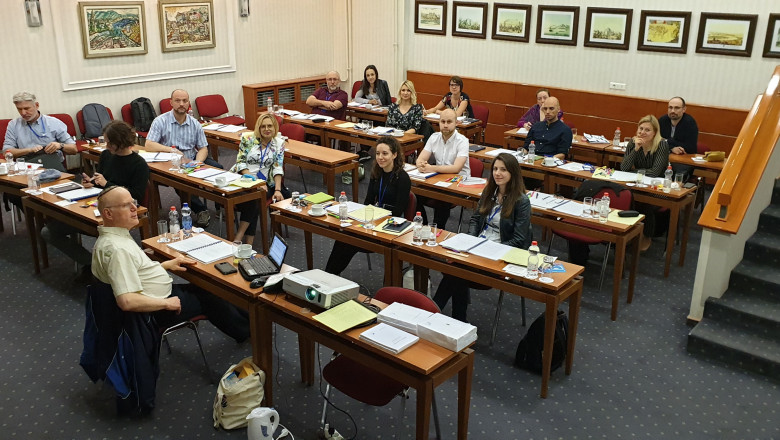
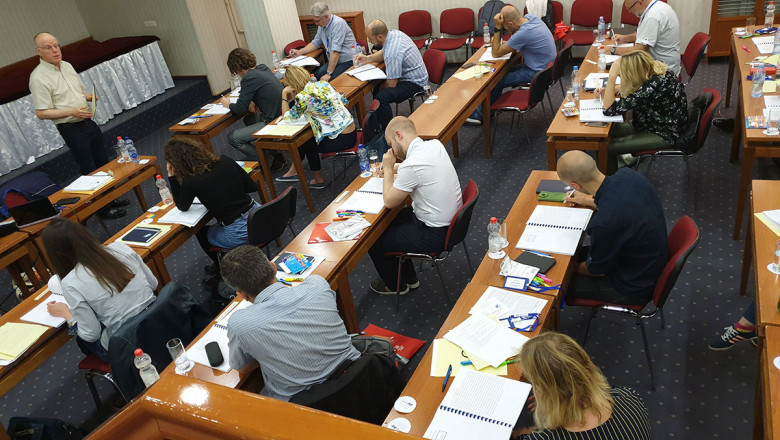
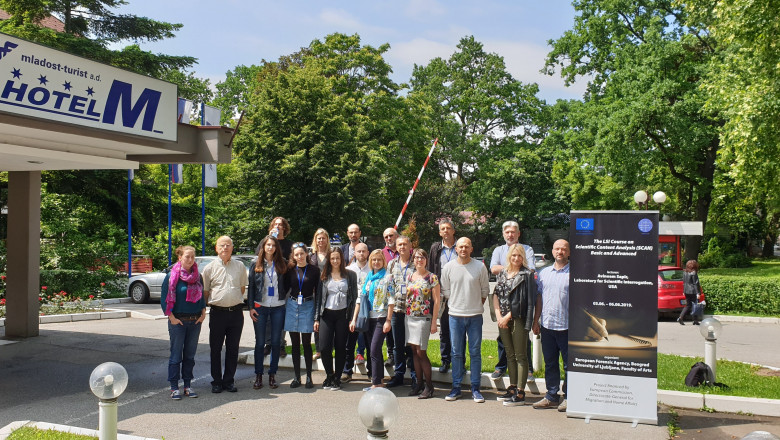
Zagreb, Croatia, September 30, 2019
Three main topics were covered in the seminar: psychotraumatization - identifying needs and empowering child victims, multidisciplinary approach and intersectoral cooperation as prevention method and use of the SCAN method. The seminar was held by prim. Domagoj Štimac, MD, psychiatry specialist, subspecialist of child and adolescent psychiatry and Ph.D. Renata Ćorić Špoljar, psychologist. In total 25 participants from Interior Ministry (different police departments) and county courts attended the seminar.
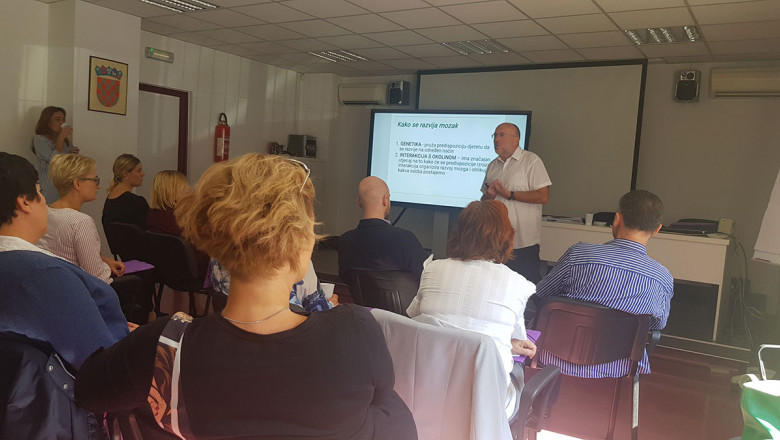
Seminar: Victim Empowerment and Prevention of Secondary Traumatization
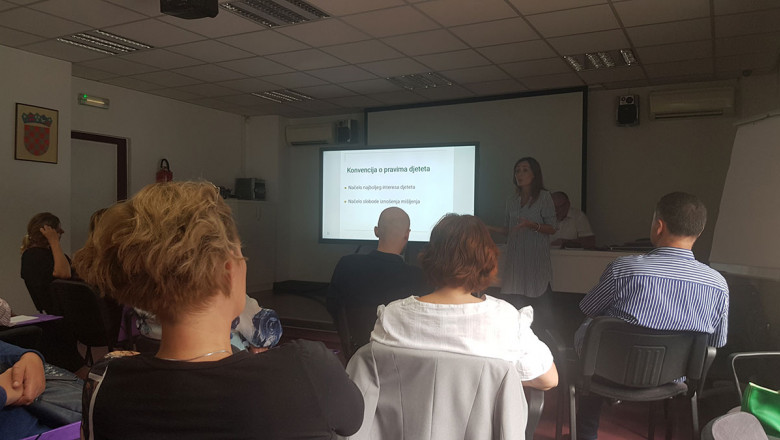
Seminar: Victim Empowerment and Prevention of Secondary Traumatization
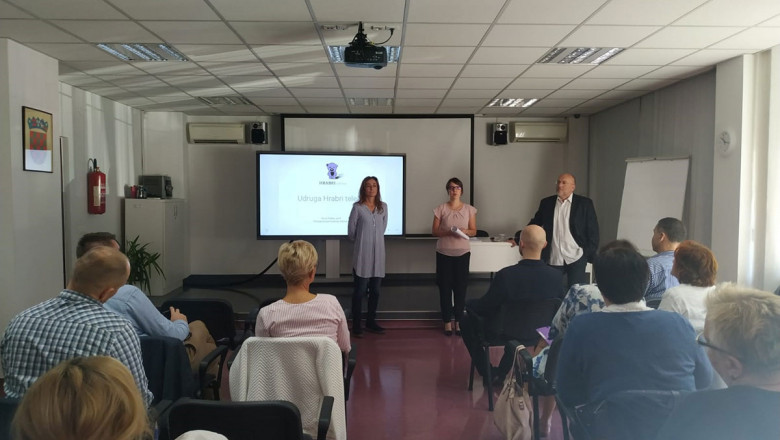
Seminar: Victim Empowerment and Prevention of Secondary Traumatization
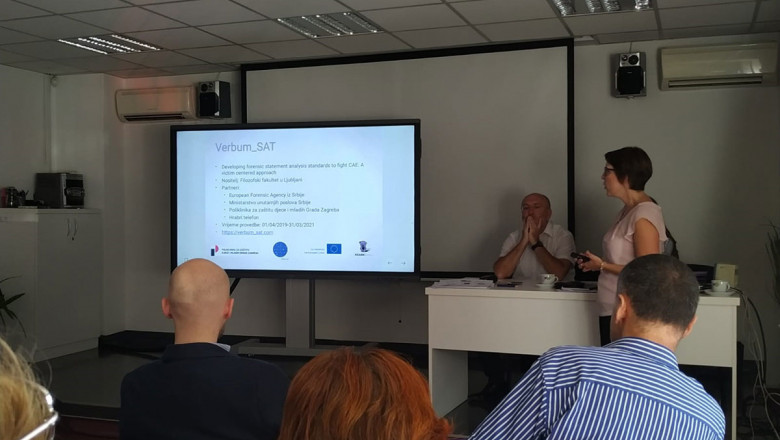
Seminar: Victim Empowerment and Prevention of Secondary Traumatization
Zagreb, October 17, 2019
Seminar Diagnosis and treatment of child victims was held by prim. Domagoj Štimac, MD, psychiatrist specialist, subspecialist of child and adolescent psychiatry and Ph.D. Renata Ćorić Špoljar, psychologist, who covered the topics Differences of clinical and forensic approach, Team Assessment Treatment of Child Victims - Trauma focused treatment and Treatment specificities during court proceedings. 20 representatives of different institutions participated.
Zagreb, February 17 - 18, 2020
International conference Sexual Abuse and Exploitation of Children – from reporting till prosecution was attended by 66 participants from numerous state institutions such as Interior Ministry, centers for social welfare, county courts, Offices for probation, and from different mental health institutions from Croatia, Slovenia and Serbia.
Keynote speakers were:
-
- Ph.D. Gordana Buljan Flander, clinical psychologist, permanent court expert, psychotherapist and the Head of Zagreb Child and Youth Protection Center;
- Ph.D. Giulliana Mazzoni, full Professor at the University La Sapienza in Rome, Italy, and Professor Emeritus at the University of Hull, UK and
- Ph. D. Lana Petö Kujundžić, judge for youth with more than 35 years of experience, chosen as a High Criminal court Judge of Republic of Croatia.
Three panel discussions were organized:
- Multidisciplinary Work with Children who are Victims of Sexual Abuse (speakers: Ministry of Interior of the Republic of Serbia, Siniša Tomić, Chief Inspector for Sexual Delicts; SOS children helpline - NADEL Serbia, Željka Burgund, Head of NADEL Serbia; NM Tom Slovenia, Slovenian Association of Friends of Youth, Švaljek Zdenka, Head of NM Tom; Croatian Association of Social Workers, Štefica Karačić, Head of CSWA; Brave phone, Hana Hrpka, prof., President of Brave Phone NGO);
- Trauma of children victims of sexual abuse - testimony influence (speakers: Zagreb Child and Youth Protection Center, Domagoj Štimac, MD, Ph.D. Primarius; Shelter for the urgent protection of abused children, Ivana Milosavljević-Đukić, Head; Faculty of Arts Ljubljana, Ph.D. Ana Jovanović, Philosopher, Verbum_Sat project coordinator; Faculty of Arts Ljubljana, Ph.D. Goran Vranešević, Philosopher, Verbum_Sat project coordinator);
Application of Innovative Methods in taking Childrens (Victims of Sexual Abuse) Testimonies” (speakers: Ministry of Interior of the Republic of Serbia, Criminal Investigations Direcorate, National Center for Criminal Forensics, Dejan Kojić, Forensic psychologist, police major, chief of Department for forensic psychology analysis and polygrafh testing and Askanije Timotić, Forensic psychologist, police captain; European Forensic Agency, Nikola Milosavljević, Internal consultant; Police Academy, College of Police, Neža Miklič, Senior police inspector; General Police Directorate, Juvenile Delinquency and Youth and Family Crime Department, Anita Matijević, Head of Department).
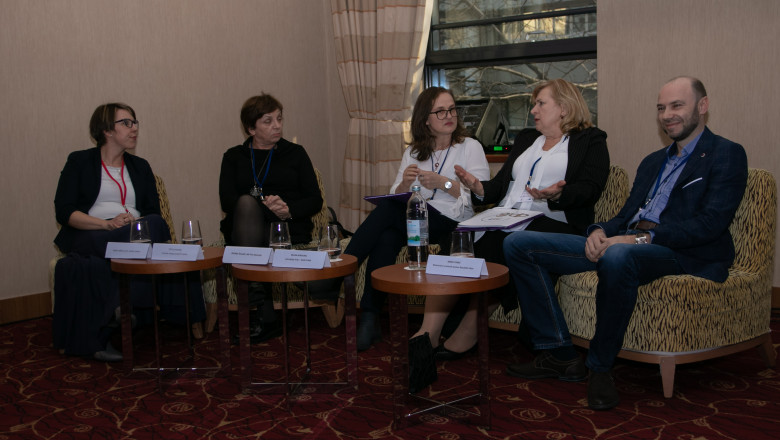
International Conference: Sexual Abuse and Exploitation of Children - From Reporting it till Prosecution
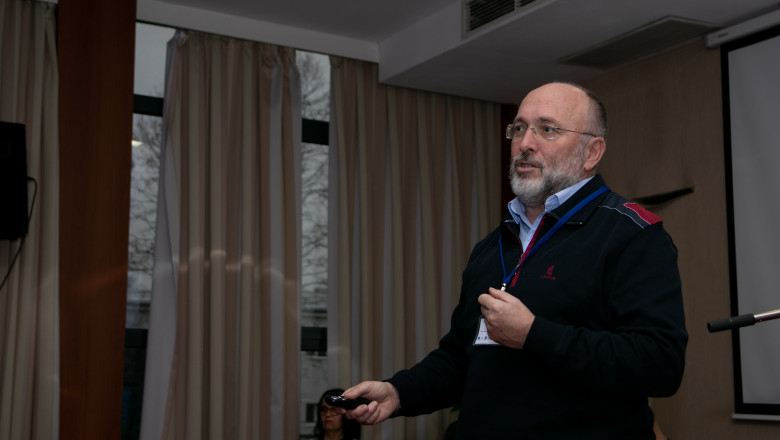
International Conference: Sexual Abuse and Exploitation of Children - From Reporting it till Prosecution
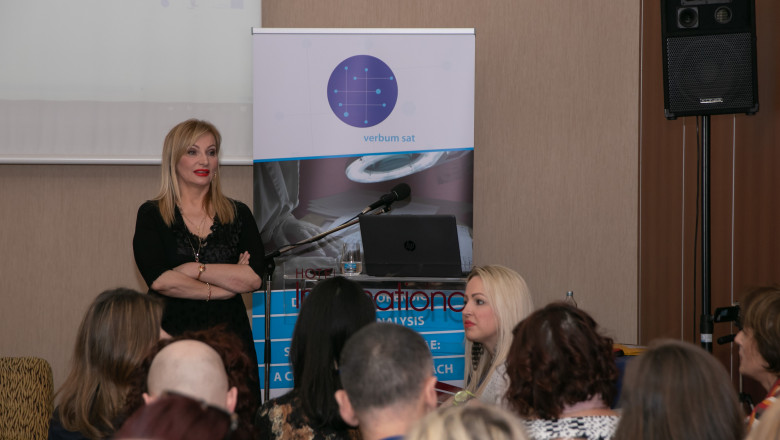
International Conference: Sexual Abuse and Exploitation of Children - From Reporting it till Prosecution
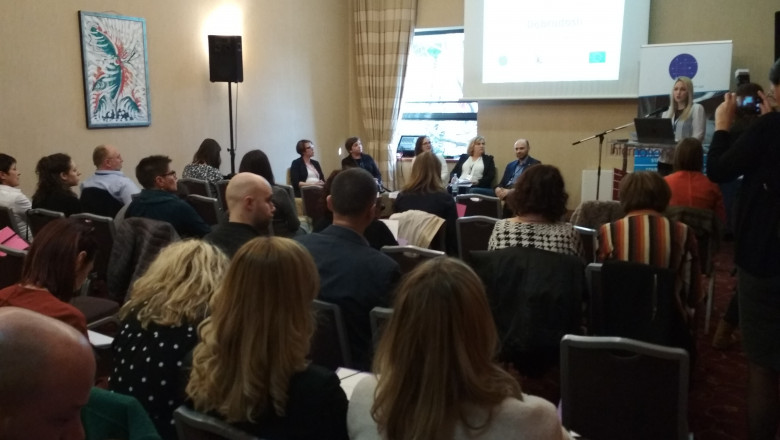
International Conference: Sexual Abuse and Exploitation of Children - From Reporting it till Prosecution
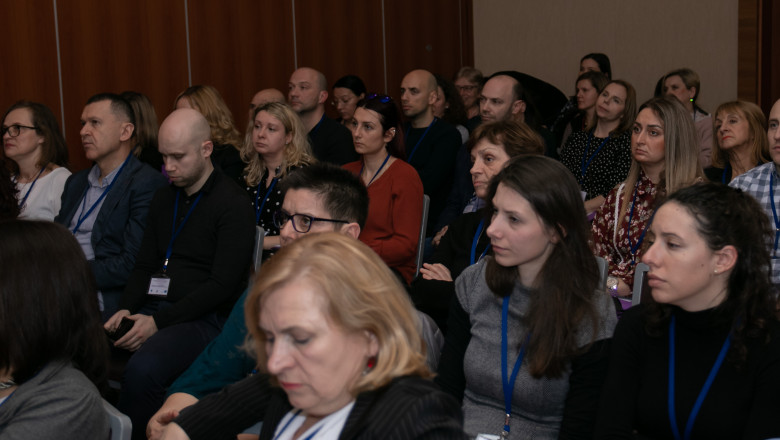
International Conference: Sexual Abuse and Exploitation of Children - From Reporting it till Prosecution
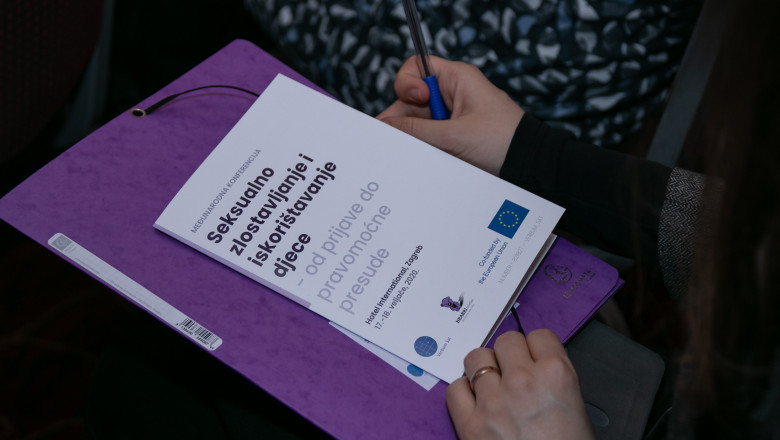
International Conference: Sexual Abuse and Exploitation of Children - From Reporting it till Prosecution
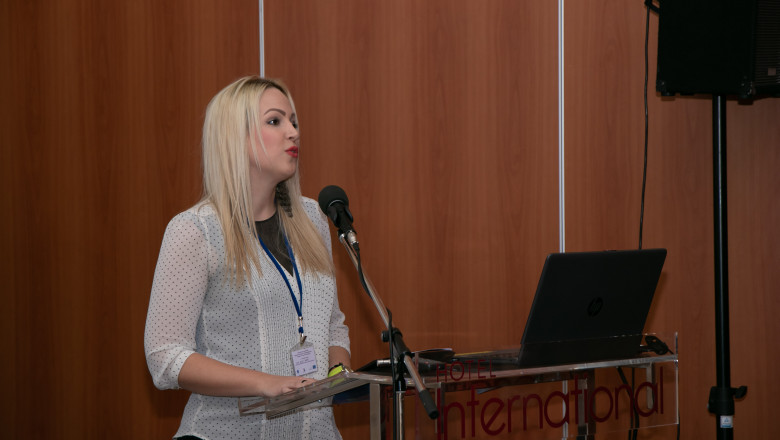
International Conference: Sexual Abuse and Exploitation of Children - From Reporting it till Prosecution
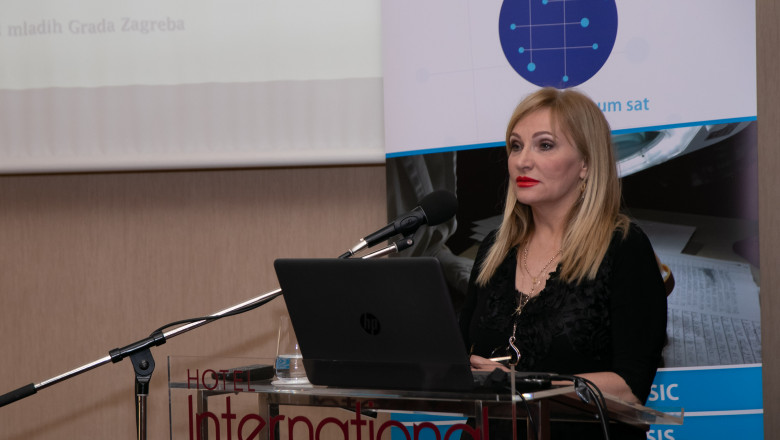
International Conference: Sexual Abuse and Exploitation of Children - From Reporting it till Prosecution
Zoom presentation, February 9, 2021
The final version of FSA model was subject of training of 15 LE experts. Training included lectures: Practical application of SCAN method (lecturer: Dejan Kojić); SCAN method in theory (Lecturer: Askanije Timotić); The NICHD Protocol and FSA method – protocol (lecturer: Sara Verderber); Theoretical framework of Forensic statement analysis (FSA) (lecturer: Goran Vranešević); Presentation of the analysis of applicability of Forensic statement analysis (FSA) (lecturer: Nikola Milosavljević).
One-day training of FSA for juridical authorities and law enforcement - investigators at operational level (crime investigators/ asylum/migration). Trainings were organized in 13 towns around Serbia and were attended by 283 participants. Trainings were implemented by Dejan Kojić, Forensic psychologist and polygraph, and Askanije Timotić, Forensic psychologist and forensic psychophysiologist:
- Užice, March 13, 2021 (16 participants),
- Sombor, March 16, 2021 (22 participants),
- Zrenjanin, March 17, 2021 (20 participants),
- Kikinda, March 17, 2021 (32 participants),
- Kraljevo, March 30, 2021 (26 participants),
- Kruševac, March 30, 2021 (23 participants),
- Jagodina, March 31, 2021 (24 participants),
- Kragujevac, March 31, (26 participants),
- Valjevo, April 14, 2021 (15 participants),
- Čačak, April 19, 2021 (19 participants),
- Leskovac, April 27, 2021 (13 participants),
- Prokuplje, April 27, 2021 (15 participants),
- Niš, April 28, 2021 (32 participants).
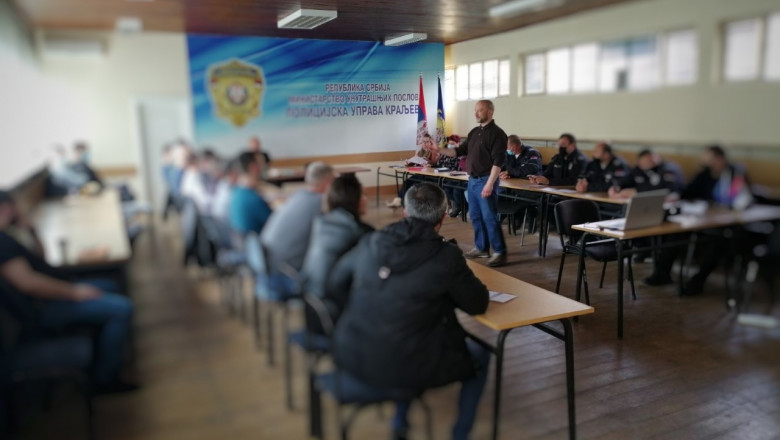
Training of FSA for Police Officers at Operational Level - Kraljevo
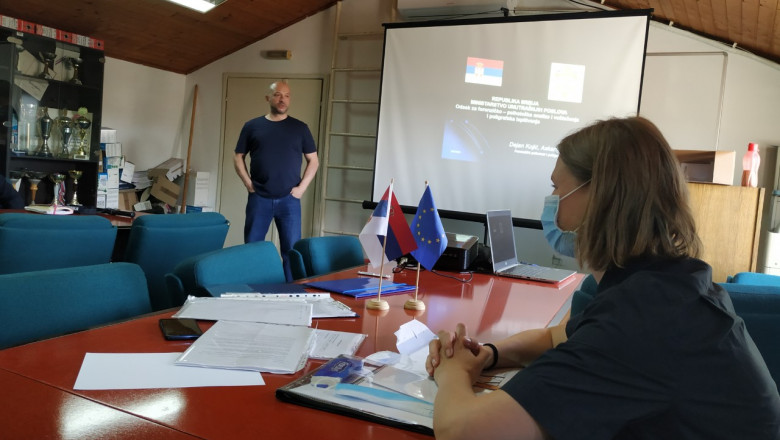
Training of FSA for Police Officers at Operational Level - Niš
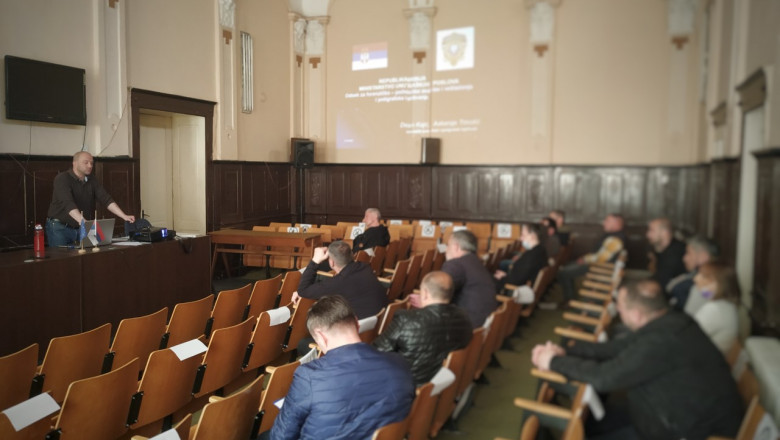
Training of FSA for Police Officers at Operational Level - Prokuplje
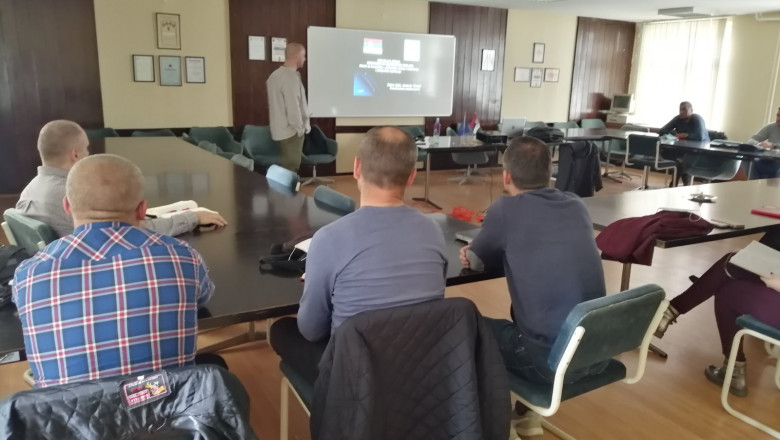
Training of FSA for Police Officers at Operational Level - Užice
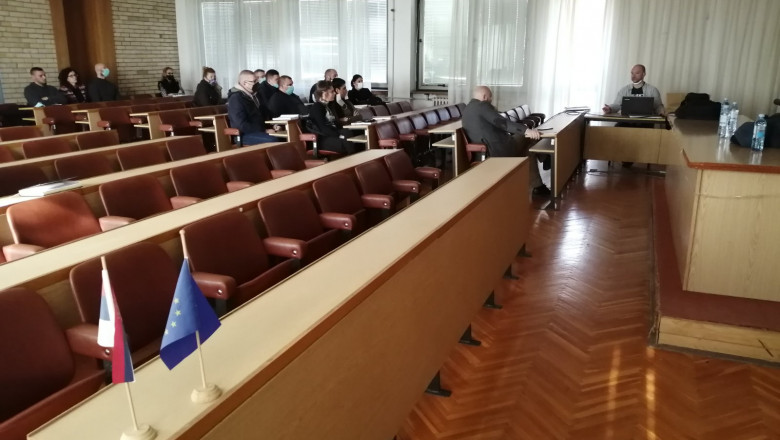
Training of FSA for Police Officers at Operational Level - Zrenjanin
An E-conference “Theory and practice in preventing secondary victimization of children who have been victims of sexual and other abuse: a meeting of forensics and psychoanalysis” was organized via ZOOM platform and was intended for the professional public from the field of CEA. It included five lectures:
1. Presentation of the Verbum sat project: development of standards for forensic analysis of statements to fight child abuse and exploitation (by lecturer Goran Vranešević, Faculty of Arts, University of Ljubljana, Slovenia)
Presentation of an interdisciplinary systemic solution to the problem of secondary victimization of children who have been victims of sexual violence and other crimes.
2. Practices and procedures for reporting children who have been victims of sexual and other abuse in Slovenia (by lecturer Mitja Svete Reclaim the Power Association, Slovenia)
A comprehensive overview of the treatment procedures and the process of the various institutions involved in dealing with violence against children. The emphasis will be on a case analysis, which includes a comprehensive treatment of the police and other organizations, from the first report to the final measure produced by the court.
3. Truth and deception in forensic proceedings for children who were victims of abuse through a psychoanalytic prism (by lecturer Goran Vranešević, Faculty of Arts, University of Ljubljana, Slovenia)
Insight into the pros and cons of different approaches to forensic interviewing, which involve children who have been victims of violence or abuse with an emphasis on ensuring the veracity of victim statements
4. Distinguishing deceptive and truthful statements from real life cases using SCAN, CBCA and RM criteria (by lecturer Nikola Milosavljević, European Forensic Agency, Serbia)
Detailed presentation of the analysis of the functioning of individual methods for determining the veracity of statements of children who have been victims of sexual violence and exploitation.
5. SCAN analysis of victim statements in practice - case study (by lecturer Dejan Kojić, Ministry of the Interior of the Republic of Serbia)
Detailed analysis of a criminal case study of a violent event through the framework of the FSA method.
1. “Modern lying”; “The Inhuman and its Twin Sister Revictimization” (Lecturer: dr. Frank Ruda, Dundee University)
Prof. Frank Ruda’s lecture focused on a rarely read text by Alexandre Koyré, which raises the question of how to explain the historical transformation that is established through lying practices. With the lecture, hel thus examine the claim that a lie has a history, and how to understand the consequences of a diagnosis that a lie became total in the middle of the last century. This historical intensification and transformation makes it difficult to distinguish between speaking the truth and the lie, and has essential practical implications for contemporary thought.
2. “The Inhuman and its Twin Sister Revictimization”(Lecturer: Martin Gramc, Institute of Biomedical Ethics and History of Medicine, University of Zurich)
In modern states, fair legal procedures are required for victims. However, evidence shows that state mechanisms designed to mitigate damage or compensate for unfair losses often have detrimental effects on victims - these mechanisms re-victimize victims. The lecture highlighted the legal and medical mechanisms that cause re-victimization practices. Its purpose is therefore to rethink re-victimization through the concept of inhumanity as a rationality developed by humans, but separate from the human will, creating the effect of dehumanization.
3. “Testifying to Contradiction: Reassessing Contradiction and Accounts of Trauma” (Lecturer: dr. Rachel Aumiller, ICI Berlin Institute for Cultural Inquiry)
In her lecture, dr. Rachel Aumiller highlighted the positive value of the contradiction in relation to the inconsistencies contained in the subject's statement of his experience, especially when he reports violence and trauma. We usually look at contradictions and inconsistencies with suspicion. Internal contradictions in an individual’s testimony usually indicate a mismatch between their words and their experiences. The lecture thus focused on how the experience of trauma is in itself a contradictory experience, which cannot always be presented with a coherent description of the events experienced.
Analysis and guidelines
The FSA method was also disseminated through guidelines to police officers and reach the number of 23.000 of police forces employees at the conclusion of the project.
The Analysis of the collection of relevant literature presents a comprehensive overview of the scientific forensic literature that has been used in the establishment of forensic statement analysis (FSA). The research and educational material is focused on the linguistic aspect of forensic investigation, but also includes general forensic topics, which need to be taken into account within the realization of the project.

